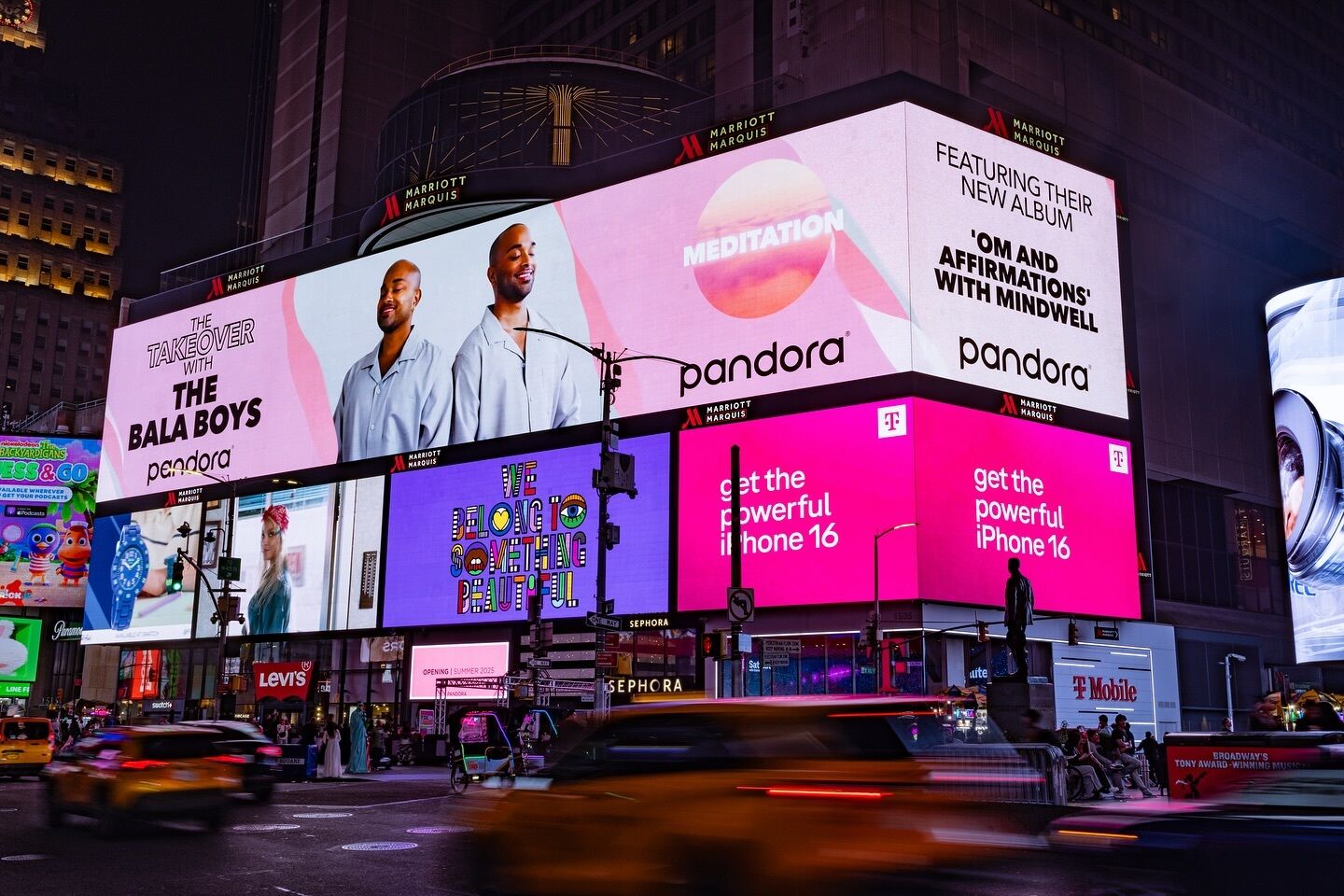There’s music that reflects how we feel — the late-night-drive songs, the ones for heartbreak spirals, the ones that let us sit with our emotions. And then there’s music that doesn’t just mirror those moods, but gently shifts them. That’s the soundscape The Bala Boys are carving out.
The Singaporean twin sound artists, Sriram and Ganesh Bala, are reimagining Indian classical traditions for a new era, blending Raagas, spoken affirmations, and ambient textures into compositions designed to soothe the nervous system and ease emotional weight. Their work has travelled from meditative corners to the heart of New York City, with their Pandora collaboration for World Mental Health Awareness Month becoming the platform’s top-streamed wellness release and earning them a spot on the iconic Times Square billboards.

Trained at Berklee and steeped in Indian classical music, the brothers bring a duality that’s both rooted and global, technical yet spiritual. Their music isn’t about chasing algorithms or trends — it’s about creating space, balance, and genuine connection. With collaborations with The Chopra Foundation and Harvard’s Sages and Scientists Symposium already under their belt, and their first full-length album on the horizon, The Bala Boys are reshaping what sound healing can mean today.
We sat down with them to talk about bridging heritage and innovation, the role of Raagas in wellness, and how they’re defining a new cultural frequency through sound.
View this post on Instagram
Your music is deeply rooted in Indian classical traditions yet feels incredibly contemporary. How do you decide which parts of tradition to preserve and which to reinvent?
Sriram: We don’t think of it as preserving or reinventing. The tradition is alive. Some parts we sing exactly as we learned them. Other times, the music asks for a different sound. We just follow where it leads.
You’ve spoken about Raagas as emotional tools. Can you walk us through how you select a Raaga for a specific track or mood?
Ganesh: Each Raaga carries a feeling. If the song needs longing, joy, or release—we choose the Raaga that holds that emotion. It’s less about logic and more about listening.
The Pandora x World Mental Health Awareness Month project became their top-streamed wellness release. Why do you think it resonated so strongly with listeners worldwide?
Sriram: Because people are looking for music that does more than entertain. They want something that helps them breathe, feel, and connect with themselves.
Congrats on your Times Square billboard! Seeing yourselves there must have been surreal. What did that moment mean for you personally, and for representation of Indian classical music globally?
Ganesh: It was humbling. To see music for wellness and meditation lit up in that space—during Mental Health Awareness Month—was a sign that this music belongs in the center of culture, not just the margins.
Your work blends music, mindfulness, and cultural heritage. Do you see yourselves more as musicians, healers or cultural storytellers?
Sriram: We don’t separate them. The song can heal. The story can be music. The music carries the culture. It’s all one.
Sound healing often gets boxed into “new age” or algorithm-driven playlists. How do you ensure your compositions stay human and emotionally authentic?
Ganesh: By starting from the voice. From breath. Being true to yourself. The technology comes later, but the root has to be human.
Your Singaporean upbringing and Berklee education give you a unique dual perspective. How has this shaped your approach to sound and storytelling?
Sriram: Singapore taught us structure, respect for tradition. Berklee gave us freedom to explore. The balance of both is in everything we do.
Many have expressed that your music helps with anxiety, grief, and emotional overwhelm. Do you have any listener stories that have stayed with you?
Ganesh: A listener once said our music became their anchor during a panic attack. That word—anchor—stays with us.
View this post on Instagram
You’ve worked with The Chopra Foundation and performed at Harvard’s Sages and Scientists Symposium. How do you adapt your performances for spaces that are both artistic and academic?
Sriram: We don’t adapt much. Whether in a lab, a hall, or a temple, the music is the same. The space adapts around it.
You’re recording your first full-length album soon. Without giving too much away, what can we expect in terms of sonic direction and emotional journey?
Ganesh: An album that feels less like a collection of songs and more like a journey.



